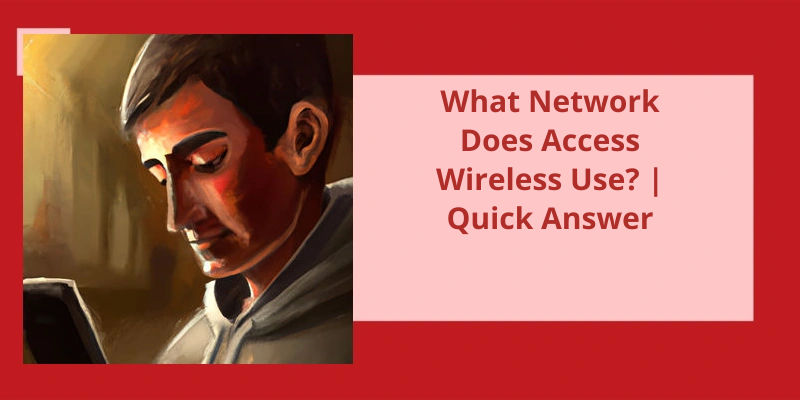Going through a break-up is never easy, but it can be especially difficult when you're dealing with a narcissist. They can make you feel like you're the problem, like you're the one who failed the relationship. But the truth is, narcissists often discard people without any regard for their feelings. They may even try to come back into your life after the break-up, in an attempt to manipulate you once again. In these cases, it's important to recognize the signs and take action to protect yourself. One of the most effective ways to do this is by blocking the narcissist from your life after the discard. But this decision isn't easy to make, and it's important to understand why it's necessary. In this article, we'll explore the reasons why blocking a narcissist is essential for your mental and emotional well-being, and provide some tips on how to do it effectively.
Why Do Narcissists Block You After Discard?
When a narcissist is done with you, they’ve no use for you in their life anymore. As such, they’ll resort to various tactics to ensure that you get out of their life quickly and silently. One of the common tactics that they use in this situation is to block you. By blocking you, they think that they’re ensuring that they never have to see or hear from you again. This tactic isn’t only dehumanizing but also insensitive because it denies you the opportunity to speak your mind.
Blocking you after discard is also a control mechanism. Manipulation is the game that narcissists play. It’s all about control. They block you to assert their dominance over you and give themselves an upper hand in the situation. By controlling your access to them, they believe that they can control the narrative and spin things to be in their favour. Besides, by cutting off communication, they hope to make you feel isolated, confused, and vulnerable.
Blocking you is also a way for narcissists to gaslight you. Gaslighting is a form of emotional manipulation that involves a narcissist planting seeds of doubt in your mind about your perception of reality. When they block you, they make you question what you did to deserve such treatment. They’ll make you believe that you were the one who caused the relationship to turn sour, and they’ll have you doubting your own intuition to the point where you begin to question your sanity.
The Psychology Behind Narcissistic Behavior
Narcissistic behavior is a personality trait characterized by an inflated sense of self-importance, a constant need for admiration and validation, and a lack of empathy for others. The psychology behind this behavior is complex, but it’s believed to be rooted in deep-seated insecurity, low self-esteem, and a fear of vulnerability. Narcissists often use grandiose language, manipulation, and even aggression to protect their fragile ego and maintain their sense of superiority. Understanding the psychology behind narcissistic behavior can help individuals recognize and address these harmful patterns in themselves or others.
Navigating a relationship with a narcissist can be a daunting and challenging experience, especially when the inevitable discard happens. Whether you’ve been discarded by a narcissist or you’re the one who chose to leave, it’s crucial to understand how this highly manipulative and emotionally abusive personality disorder can affect their behavior and emotions post-discard. In this article, we’ll look at the various ways that a narcissist might treat you, and what their underlying motivations may be.
How Does a Narcissist Treat You After Discard?
When a narcissist discards you, they can simply disappear and give you the silent treatment. You may feel like you’ve done something wrong or something to upset them, but it’s important to remember that this is a typical behavior of a narcissist. They don’t want to address the issue or deal with any emotions that come with it, so they just shut down. They may also find someone else to focus their attention on and completely forget about you.
On the other hand, if you’re the one who discarded a narcissist, you can expect some backlash. They may try to manipulate, guilt trip, or gaslight you into coming back. They’ll say anything to fix the situation and feed their ego. They may even try to make you jealous by openly flirting with other people or make you feel guilty for leaving them. Keep in mind that narcissists struggle with accepting rejection and would do anything to maintain control over the situation.
After the initial reaction, narcissists may begin to spread rumors about you to make them feel better about themselves. They may try to paint you as the bad guy and create a narrative that justifies the way they treated you. This is because they cant accept responsibility for their actions and need to protect their image at all costs. They may also try to hoover you back into their lives by sending you messages or calling you unexpectedly.
It’s important to remember that a narcissists behavior after discard says more about them than it does about you. It’s not a reflection of your worth or value as a person. It’s a reflection of their own insecurities and inability to handle rejection. It’s okay to cut ties and protect yourself from any further manipulation or harm. You deserve to surround yourself with healthy relationships that fuel your growth and happiness.
Whether you’re the one who discarded them or not, their behavior after discard can be unpredictable and harmful. It’s crucial to recognize their actions as a reflection of their own insecurities and protect yourself from any further manipulation or harm. It’s okay to prioritize your own well-being and surround yourself with healthy relationships that support your growth and happiness.
The Red Flags of Narcissistic Behavior to Look Out for in a Relationship
When in a relationship, it’s important to be aware of narcissistic behavior. Some red flags to look out for include excessive praise of themselves, an inability to accept criticism, a lack of empathy towards others, manipulating and controlling behavior, and an entitlement mentality. Keep an eye out for these behaviors to protect yourself from potential emotional abuse.
It’s not uncommon to question whether a narcissist cares when we take the drastic step of blocking them. However, understanding how a narcissist perceives being blocked can provide valuable insight into their mindset and personality traits. For most narcissists, being blocked is more than just a nuisance – it can be a major threat to their need for control and dominance.
Does a Narcissist Care if You Block Them?
Narcissists feed off of attention and control, and being blocked takes away their power over you. Thus, it’s common for them to feel angry, hurt, and betrayed by the act of blocking.
It’s important to remember that narcissists don’t handle rejection well. Blocking them is essentially a form of rejection, which can lead them to becoming defensive, hostile, and sometimes even violent. They may even try to retaliate by creating fake accounts or using other tactics to continue to engage with you. Thus, it’s important to be cautious when dealing with a narcissist who’s been blocked.
They may simply assume that the other person is busy or not interested in communicating at the moment. However, once they realize they’ve been blocked, they’re likely to react strongly. For example, they may bombard the other person with messages, or they may start talking negatively about the person to mutual acquaintances.
The Psychology Behind Why Narcissists Crave Attention and Control
Narcissists crave attention and control due to underlying psychological factors. They’ve an inflated sense of self-importance and a deep need for admiration and validation from others. They may feel a lack of control in their lives and use attention-seeking behaviors as a means of gaining power. Additionally, they may have experienced childhood trauma or neglect, leading to a need for constant attention and control in their adult relationships.
Dealing with a narcissist can be a tricky and frustrating experience, especially if you’re unsure of how to manage their behavior. While ignoring a narcissist may seem like a harmless way to avoid conflict, it can actually have devastating consequences. In this article, we’ll explore the dynamics of narcissism and delve into the question of whether ignoring a narcissist truly bothers them.
Does Ignoring a Narcissist Bother Them?
Narcissists have an insatiable need for attention and validation, and when they’re denied the attention they crave, they often respond with anger and hostility. This is because their sense of self-worth is tied to how others perceive them, and when they aren’t receiving the attention or praise they feel they deserve, it can be incredibly threatening to their sense of self.
Ignoring a narcissist can be a powerful tool for protecting yourself from their toxic behavior, but it’s important to be prepared for the potential consequences. It isn’t uncommon for a narcissist to escalate their efforts to gain your attention when they’re being ignored, and this can lead to more dangerous and abusive behavior.
However, in other situations, it may be more appropriate to confront the narcissist and set boundaries around their behavior.
It’s important to remember that narcissists are highly skilled at manipulating and gaslighting their victims, and it can be incredibly challenging to navigate these relationships.
This may include friends, family members, or a therapist who can offer guidance and support as you navigate this difficult relationship. By putting your own needs and well-being first, you can begin to break free from the grip of a narcissist and find a healthier path forward.
The Psychology Behind Narcissistic Behavior and Why They Crave Attention and Validation.
This topic delves into the reasons why narcissistic individuals display attention-seeking and validation-seeking behavior. It discusses the psychological factors that contribute to this behavior, such as low self-esteem and insecurity, as well as the impact of societal and cultural influences. Understanding the psychology behind narcissistic behavior can help individuals recognize and cope with their own tendencies towards narcissism, as well as provide insight into how to interact with those who exhibit narcissistic traits.
Dealing with a narcissist can be challenging and emotionally taxing. You may wonder if engaging with them in any way is worth the effort and stress. In this article, we will delve into the question of whether it’s best to stay silent with a narcissist and explore the power of silence in deterring their behavior. We will also provide some tips on how to create and maintain a no-contact rule to help you live a happier and more peaceful life.
Is It Best to Stay Silent With a Narcissist?
Dealing with a narcissist can be an extremely challenging and emotionally draining experience. Narcissists are highly manipulative individuals who lack empathy and prioritize their own needs above anything else. Thus, it’s essential to understand that silence is the most powerful weapon when it comes to dealing with a narcissist.
This is because narcissists feed on attention, validation, and admiration from others. When you don’t give them this, they lose interest and will look elsewhere for their next target. Staying silent also means that youre not feeding into their manipulative tactics and aren’t allowing them to control the conversation or situation.
Creating a no-contact rule is essential when dealing with a narcissist. This means cutting off all communication and avoiding all contact with them completely. It’s important to treat them as if they never existed in your life. Doing so will help you move on and start to heal from the emotional damage that they may have caused.
Walking away entirely by going full no contact can be challenging, especially if the narcissist is a family member or a close friend. However, it’s the most effective way to safeguard your mental health and well-being. Remember that you aren’t responsible for their behavior, and you don’t have to endure their abuse to maintain a relationship.
How to Identify a Narcissist in Your Life
- They’ve an inflated sense of self-importance.
- They require constant admiration.
- They lack empathy for others.
- They’ve a sense of entitlement.
- They’re often preoccupied with fantasies of power, success, or beauty.
- They exploit others for their own gain.
- They can be very charming and persuasive.
- They often have a fragile self-esteem.
- They tend to be envious of others and believe others are envious of them.
- They’ve difficulty taking criticism.
Conclusion
Narcissists often engage in manipulative tactics to regain control and continue their destructive behavior, making it imperative to cut off contact completely. By blocking them, you’re enforcing boundaries and signaling that their behavior won’t be tolerated. It may be difficult to cut ties with someone you once cared for, but in the long run, it’s for the best. Remember to prioritize your mental health, seek support from loved ones, and focus on healing and moving forward.






